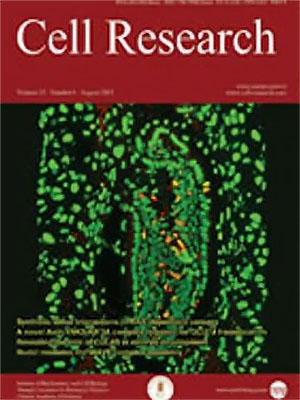
Volume 15, No 10, Oct 2005
ISSN: 1001-0602
EISSN: 1748-7838 2018
impact factor 17.848*
(Clarivate Analytics, 2019)
Volume 15 Issue 10, October 2005: 749-769
REVIEWS
The role of apoptosis in the development and function of T lymphocytes
Nu ZHANG, Heather HARTIG, Ivan DZHAGALOV, David DRAPER, You Wen HE*
Department of Immunology, Duke University Medical Center, Durham, NC 27710, USA
Correspondence: You Wen HE(he000004@mc.duke.edu)
Apoptosis plays an essential role in T cell biology. Thymocytes expressing nonfunctional or autoreactive TCRs are eliminated by apoptosis during development. Apoptosis also leads to the deletion of expanded effector T cells during immune responses. The dysregulation of apoptosis in the immune system results in autoimmunity, tumorogenesis and immunodeficiency. Two major pathways lead to apoptosis: the intrinsic cell death pathway controlled by Bcl-2 family members and the extrinsic cell death pathway controlled by death receptor signaling. These two pathways work together to regulate T lymphocyte development and function.
FULL TEXT | PDF
Browse 2002


